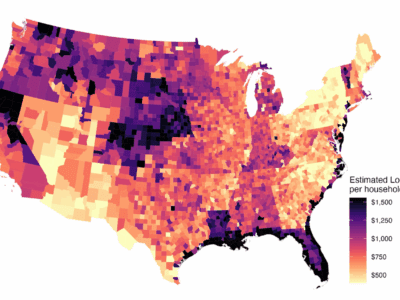Our Common Ground
New book on history of federal public lands is an essential contribution
America’s public lands are a national, and even international, treasure. Over a quarter of the United States is owned and managed by the federal government. Public lands provide recreational opportunities for all Americans. They provide valuable habitat for species and ecosystems. They provide important natural resources, such as timber and minerals, that are both important for local economies, and for national industrial policy. (For instance, federal public lands can provide rare earth minerals crucial to clean energy technology.) They provide sites for renewable energy production such as wind, solar, and geothermal energy. And they protect sites that are deeply meaningful, even sacred, for all Americans, but particularly Native Americans. And because they are public, their management is accountable to all Americans through our elected representatives (at least in theory, if not always in practice).
As might be expected given the many different benefits that our public lands provide, there is a long history of conflict over them, going back to the very founding of the United States in the late eighteenth century. Disputes over whether the land should be seen as an income generator for the federal government, or a resource to be used to facilitate economic growth and income redistribution; whether the resources of the public lands are better used in the here and now to advance rapid economic growth or to be conserved for the use and enjoyment of future generations; whether the highest and best use of the public lands is for economic development or for ecological preservation. Those conflicts continue to be salient today, over oil and gas development on federal lands, protection of endangered species, and road construction, as well as how management can and should adapt to a future of climate change.
There are even disputes about whether we should even have the public lands: In the first century or so of the history of the United States, the primary federal policy was to sell or give away the public lands to private parties or to states, often as quickly as possible, but over the past century, federal policy has changed to retaining the lands for the benefit of all Americans. Over many decades there have been various proposals to transfer all or most federal public lands directly to state ownership—either on the grounds that this would lead to better management, and/or on the grounds that long-term federal ownership and management of those lands exceeds federal power under the Constitution.
A key to understanding the public lands conflicts of today is understanding the history of how those lands came to be, and how they have been managed, disposed over, and fought over. History can give us lessons as to successes and failures; history can provide important data for legal disputes over the constitutional structure for federal public land management; and history can also tell us the nature and context of disputes that we have today.
Given the importance of history for our public lands, we are fortunate to have a valuable new resource for that history, authored by one of the foremost experts on that history. Our Common Ground: A History of America’s Public Lands is a comprehensive overview of the relevant history, covering episodes both famous (like the creation of the National Park System) and obscure (like the early forays by the federal government into leasing federal lands for mining in the first half of the nineteenth century). Its author, John Leshy, an emeritus profess at UC Hastings, is one of the foremost lawyers and scholars in public lands law, and a former Solicitor (top lawyer) for the agency that manages most of the public lands, the U.S. Department of the Interior. John’s writing is crisp and clear—unlike some historical works, this one is a pleasure to read. It is an important book for both scholars and laypeople interested in the topic, and it’s a book that I have already drawn heavily on in my own scholarship.







Reader Comments